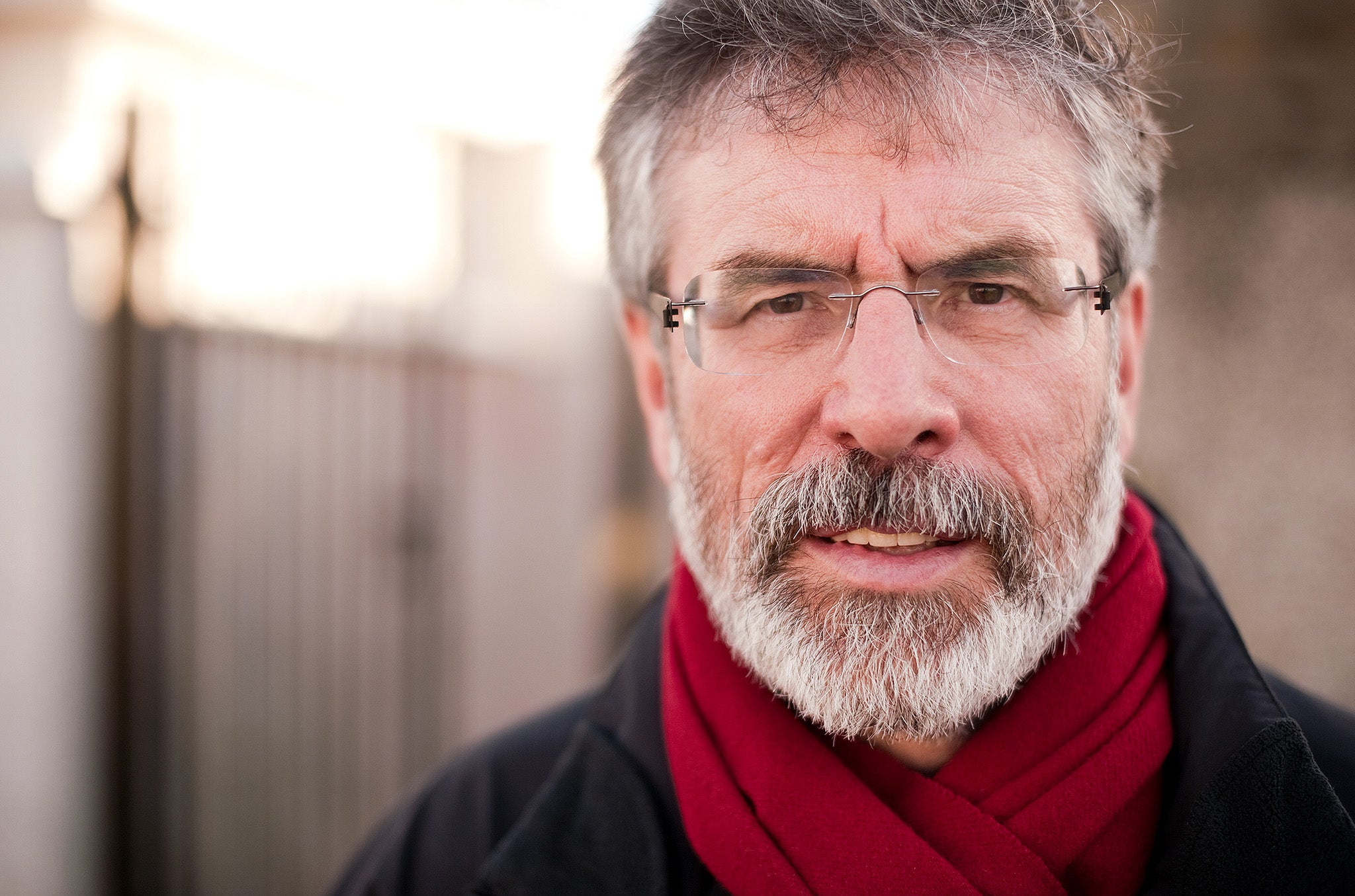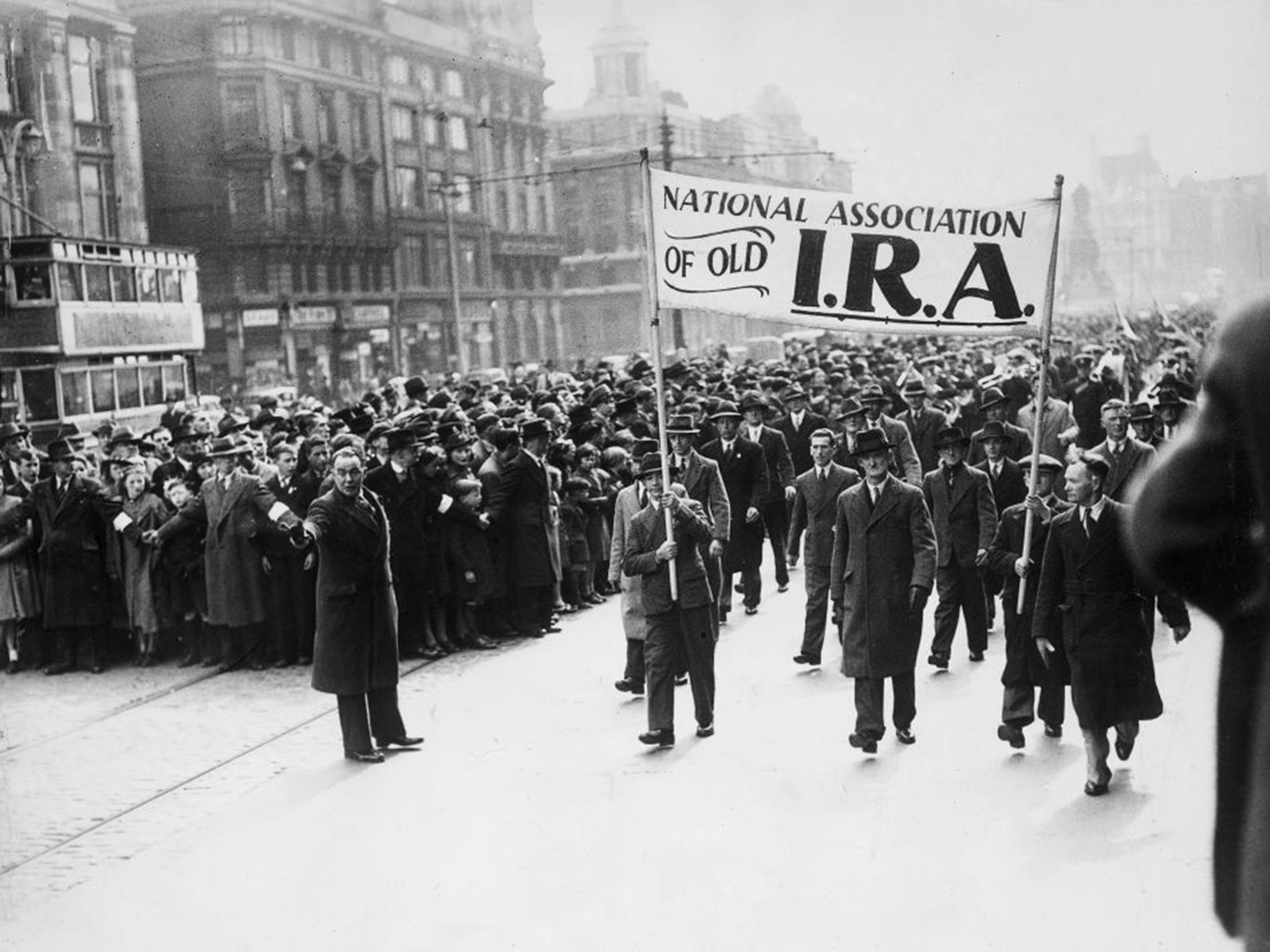The three Irish parties vying for power - each with a very bloody past
The three today differ less on policy than on mutual enmity

The three Irish parties emerging strongest from the election - Fine Gael, Fianna Fail and Sinn Fein - all claim to be the one true church of Irish nationalism.
Each claims direct succession from the Dublin rebels who challenged British rule in the Easter Rising of 1916.
These forces are still vying for power as Ireland prepares to commemorate the 100th anniversary of the Rising, Ireland's opening salvo in its successful war of independence from Britain. Here's a look at those parties - and their bloody pasts.
IN THE BEGINNING
Once upon a time, Ireland had a Sinn Fein party that sought to wrest the island from the UK.
But that party, founded in 1905 by Arthur Griffith, was torn in two in 1922 amid civil war following Ireland's acceptance of a treaty with Britain that offered autonomy, not full independence.
Sinn Fein leaders who accepted the treaty became Fine Gael; those who tried to overthrow it, Fianna Fail. And those left behind in the new UK territory of Northern Ireland spawned a new generation of militants who, decades later, claimed the Sinn Fein mantle as their own.
The three Irish political parties today differ less on policy - all promise no more austerity, tax cuts, better housing and health services - than on mutual enmity. It remains to be seen who will swallow their pride and compromise, or whether the trio will stay separate and Ireland will face a second early election.

FINE GAEL
"The Tribe of the Irish" has a martyred father figure: Michael Collins. He fought in the Rising, oversaw Sinn Fein fundraising, led IRA intelligence operations and a Dublin hit squad during the 1919-21 War of Independence, joined Griffith in negotiating the treaty with Britain that ended the war and established the Irish Free State, and was assassinated by former comrades the following year.
Collins' pro-treaty camp routed anti-treaty forces and won all elections from 1923 to 1932 as its anti-Fianna Fail posters warned voters they must keep "the shadow of the gunman ... from your home." But since then, Fine Gael never again has won back-to-back elections as it positioned itself as the party of law, order and Roman Catholic virtue.
Fine Gael has regained power only in alliance with Labour, the party of Ireland's unions. That partnership has helped Fine Gael evolve into a more socially progressive force open to ending bans on divorce and gay marriage and permitting abortions when doctors deem a woman's life is at risk.
But Labour suffered heavy losses as results came in Saturday, and Fine Gael has conceded it has few options besides turning to Fianna Fail.
FIANNA FAIL
"The Warriors of Destiny" were founded in 1926 by Eamon de Valera, who had commanded a rebel unit in the Rising, became Sinn Fein's president in the wartime rebel government, broke with Collins over the treaty and championed a disastrous civil war that created bitterness for generations.
Initially determined to observe a Sinn Fein boycott of the new Irish state, de Valera ultimately led most Sinn Fein activists into his new party and parliament - and in the process became Ireland's most dominant political figure of the 20th century.
With heavy doses of free-spending populism, Fianna Fail won the most parliamentary seats in every general election from 1932 to 2011, although it didn't always win enough to block the Fine Gael-Labour alternative. Fianna Fail never has stayed long in opposition and proved surprisingly resurgent again Saturday, drawing nearly even with Fine Gael barely five years after being blamed for bankrupting the country.
While Fine Gael supported a minority Fianna Fail government in 1987-89, Fianna Fail has never returned that favor and still calls its opponents "Blueshirts," a reference to Fine Gael's flirtation with Fascism in the 1930s.
SINN FEIN
Today's party is technically Provisional Sinn Fein, a breakaway movement formed in 1970 in the Northern Ireland capital, Belfast, amid the rise of Catholic-Protestant street violence and the deployment of British troops to support the police.
The new Sinn Fein initially served as the public face of the outlawed Provisional IRA, a paramilitary group bent on overthrowing Northern Ireland's Protestant government and forcing the territory into the independent south. The Provisionals pursued a deadly feud with former colleagues in what was rebranded the Official IRA and Sinn Fein.
The Provisionals' most politically savvy commander, Gerry Adams, transformed his Sinn Fein faction over two decades into a well-organized, highly motivated political party. In 1983, while still reputedly serving as an IRA commander, he was elected Sinn Fein president, a position he still holds today at age 67. In 1986 he ended Sinn Fein's refusal to take seats in the Irish parliament, though it took another 11 years to win one.
Adams helped deliver 1990s IRA cease-fires that allowed Sinn Fein to become increasingly palatable to northern Catholics, who have made the party their dominant representative in a Northern Ireland coalition government with Protestant leaders.
Gains have taken longer in the Irish Republic, where successive Fine Gael and Fianna Fail governments banned Sinn Fein's northern brogues from the airwaves until 1994.
Throughout this month's campaign, Adams has faced repeated questioning about his IRA past and unsolved crimes. While this week's rise to third place represents another breakthrough for Sinn Fein, many analysts think the party would do better if it permitted a new generation with no Provisional background to take charge.
AP
Join our commenting forum
Join thought-provoking conversations, follow other Independent readers and see their replies
Comments
Bookmark popover
Removed from bookmarks